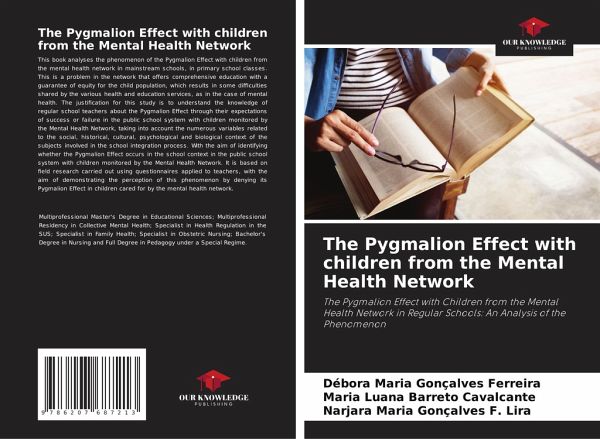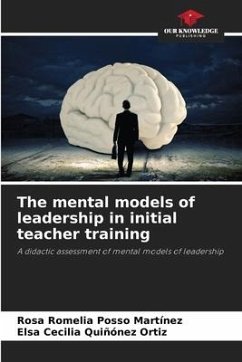
The Pygmalion Effect with children from the Mental Health Network
The Pygmalion Effect with Children from the Mental Health Network in Regular Schools: An Analysis of the Phenomenon
Versandkostenfrei!
Versandfertig in 6-10 Tagen
36,99 €
inkl. MwSt.

PAYBACK Punkte
18 °P sammeln!
This book analyses the phenomenon of the Pygmalion Effect with children from the mental health network in mainstream schools, in primary school classes. This is a problem in the network that offers comprehensive education with a guarantee of equity for the child population, which results in some difficulties shared by the various health and education services, as in the case of mental health. The justification for this study is to understand the knowledge of regular school teachers about the Pygmalion Effect through their expectations of success or failure in the public school system with chil...
This book analyses the phenomenon of the Pygmalion Effect with children from the mental health network in mainstream schools, in primary school classes. This is a problem in the network that offers comprehensive education with a guarantee of equity for the child population, which results in some difficulties shared by the various health and education services, as in the case of mental health. The justification for this study is to understand the knowledge of regular school teachers about the Pygmalion Effect through their expectations of success or failure in the public school system with children monitored by the Mental Health Network, taking into account the numerous variables related to the social, historical, cultural, psychological and biological context of the subjects involved in the school integration process. With the aim of identifying whether the Pygmalion Effect occurs in the school context in the public school system with children monitored by the Mental Health Network. It is based on field research carried out using questionnaires applied to teachers, with the aim of demonstrating the perception of this phenomenon by denying its Pygmalion Effect in children cared for by the mental health network.














